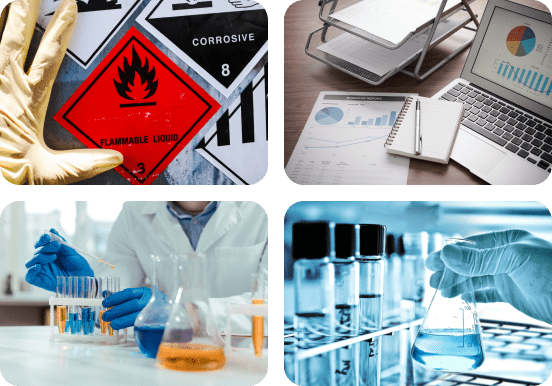TSCA & PBT Regulation
TSCA & PBT Compliance
Established in 1976, the Toxic Substance Control Act (TSCA) regulates chemical usage in the U.S., aiming to protect human health and the environment. Compliance, enforced by the EPA, mandates stringent regulations, testing, and restrictions. Our Subject Matter Experts offer consulting, devising documented TSCA compliance strategies. EPA assesses chemicals for risk, identifying “unreasonable risks.” Crucial aspects include reporting, exemptions, and documenting restricted substance use. Manufacturers must communicate banned substances in products to customers and maintain evidence of due diligence for three years.
Our TSCA compliance services streamline data organization, easing supplier burden via an online platform. Our solution ensures compliance with EPA’s PFAS reporting requirements, offering up-to-date data. Our supplier engagement team aids in collecting and organizing TSCA restricted chemicals information, ensuring regulatory adherence.


We effective address these compliance challenges
- Lack of understanding of compliance (internally and supply base)
- High costs of sourcing and collating compliance data from suppliers.
- Varying material declaration formats, from one supplier to another
- Tracking ongoing changes to the regulation and related exemptions
- Complexities of interpreting the legislation and its impact
- Validate more actionable data by digging down the supply chain.
- Handle large amounts of data, including newly added substances such as PFAS, with ease.
- Assessing real-time risk metrics by identifying high-risk substances to mitigate supply chain risks.
TSCA Consulting Services Portfolio
- TSCA Consulting
- Gap Analysis
- Full Material Declaration (FMD)
- Managed Compliance
- Internal and Supplier Training
- Collecting Supplier declarations and certifications
